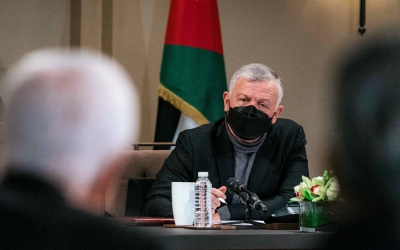Credit Suisse: Saudi Arabia and Qatar set to lose big after UBS deal

Saudi Arabia and Qatar are both set to suffer big losses on investments in Credit Suisse, after UBS struck a cut-price deal to buy the scandal-hit Swiss investment bank.
Less than six months ago, the Saudi National Bank paid $1.5bn for a 9.9 percent stake in Credit Suisse.
That stake is now worth about $280m, the website Market Watch reported, after UBS swooped in to acquire its embattled rival this weekend in a deal initially valued at about $3.25bn.
Also left reeling is the Qatar Investment Authority, which has a 6.8 percent stake in Credit Suisse. Qatar’s sovereign wealth fund increased its stake as recently as January this year, becoming the Swiss bank’s second-largest shareholder after Saudi National Bank, which is the largest bank in Saudi Arabia.
Olayan Group, which is headquartered in Liechtenstein but whose founder was one of Saudi Arabia’s wealthiest businessmen, is the number-three shareholder in Credit Suisse.
Stay informed with MEE's newsletters
Sign up to get the latest alerts, insights and analysis, starting with Turkey Unpacked

The Swiss investment bank has been hit by a wave of scandals that, along with the collapse of Silicon Valley Bank and Signature Bank in the US, have threatened to bring down the global banking system in the biggest financial crisis since 2008.
Last Wednesday, the chairman of Saudi National Bank, Ammar al-Khudairy, exacerbated an already dire situation by giving an interview to Bloomberg TV in which he was asked if the bank would increase its stake in Credit Suisse.
“The answer is absolutely not, for many reasons outside the simplest reason, which is regulatory and statutory,” he said.
The interview triggered an investor panic, Market Watch reported, with shares in Credit Suisse falling by 24 percent, even though al-Khudiary’s comments were “fairly consistent with what the bank had said in October”.
Back then, the Saudi National Bank said it had no current plans to go beyond its 9.9 percent shareholding, though it also said that “any future investment would be appraised individually at the time by carefully considering the merits of such investment based on financial impact, capital treatment, and long-term shareholder value creation.”
Saudi National Bank also made clear it was not interested in international expansion, meaning that the Credit Suisse investment was a “financial opportunity” with potential benefits in serving its own wealthy clients with the Swiss bank’s products and services.
Middle East Eye delivers independent and unrivalled coverage and analysis of the Middle East, North Africa and beyond. To learn more about republishing this content and the associated fees, please fill out this form. More about MEE can be found here.




